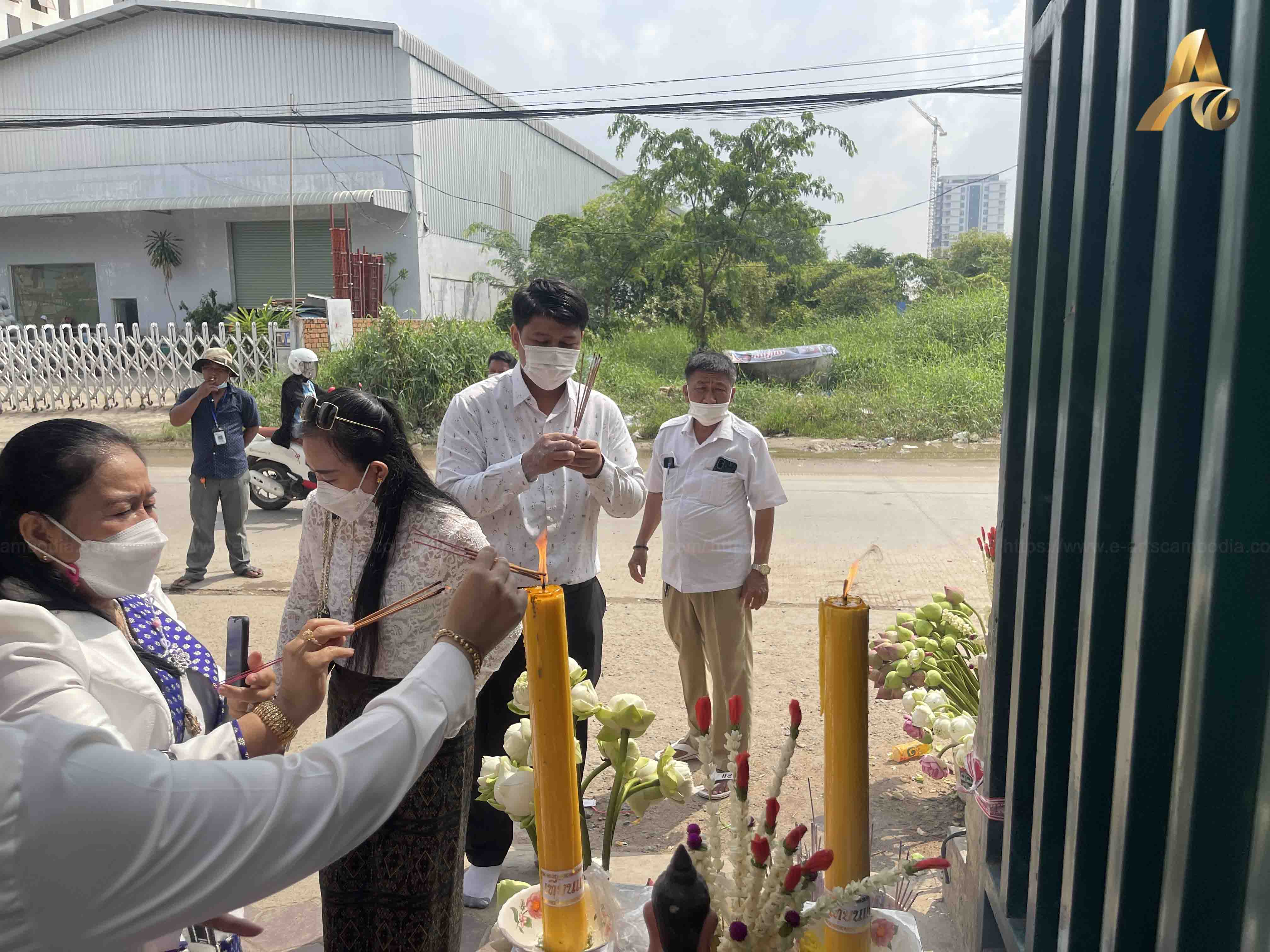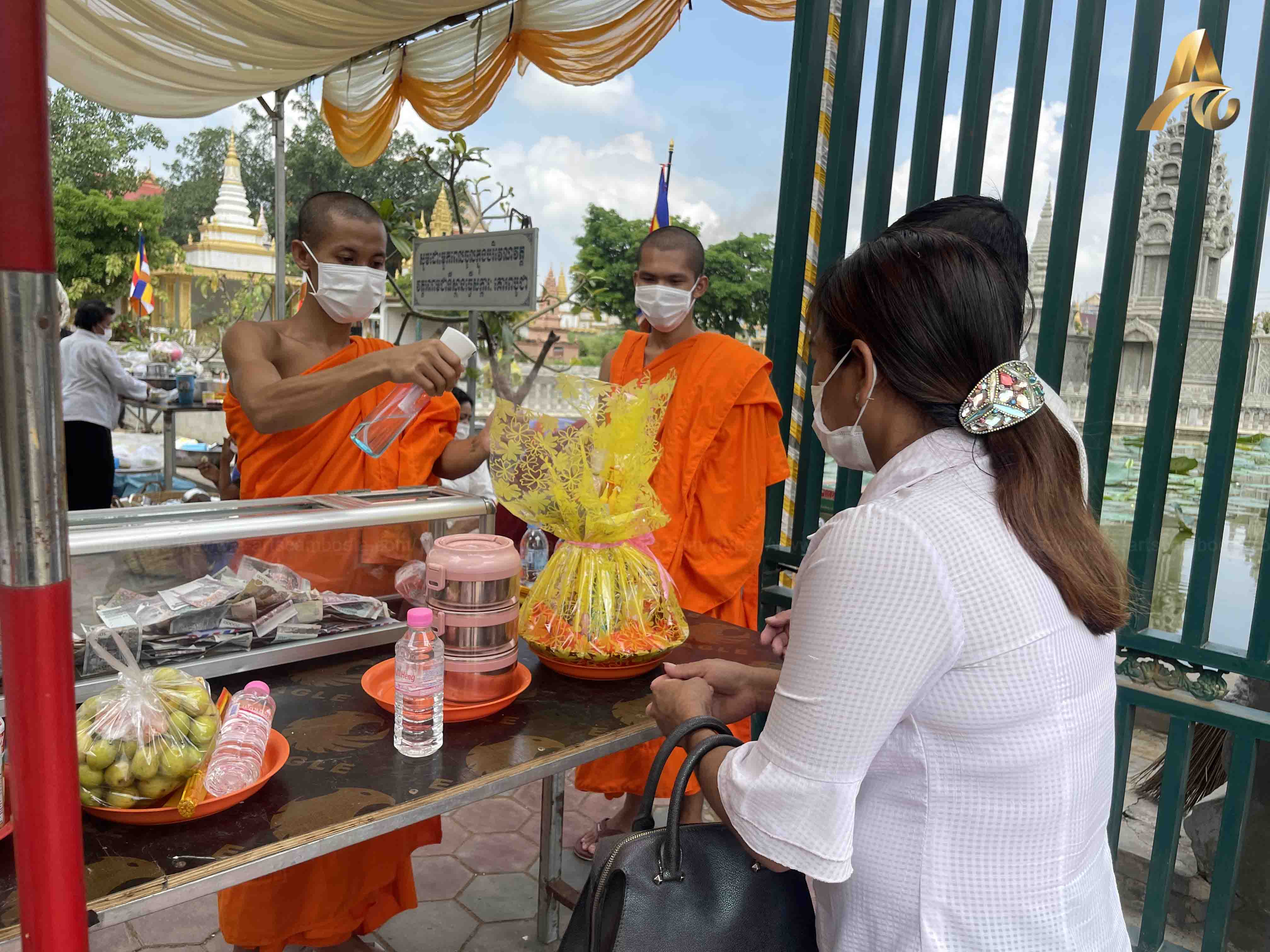Phnom Penh: Pchum Ben is a three-day national holiday. It’s the culmination of the 15-day Kan Ben festival, Which started on 22 September. It is celebrated in a Budhhist fashion but is not actually a Buddhist festival. People bring flowers to pagodas. Candles and incense being lit for prayer. Foods being offered to the monks. Traditional music using yike and lakhon basac reverberating in these sacred places. At night, monks recite a prayer.
These are just some of the activities during the Pchum Ben festival. One of the most important festivals in the Khmer calendar – for Buddhist people. This is the time when Cambodians pay respects to their deceased relatives of up to seven generations. In the Khmer language, Pchum or Brochum means “a meeting or gathering”. While Ben means “a ball of something”, such as rice or meat.
It is also known as “Ancestors Day.” The first 14 days is called Kan Ben. Villagers visit at least seven different pagodas to fulfill their good deeds during this time. Cambodians usually travel to the provinces to meet with their relatives. This is the time to offer food to what they call the “hungry ghosts”.
It refers to the spirits of their deceased loved ones.
Apart from offering food and flowers, this is also the moment that Khmer people pause from farming for a while to unite with their friends and families. The rainy season means a rest for farmers, since farming is the main source of income for the majority of Cambodians. But after working throughout the year, the older generation of Khmers explain how important Pchum Ben is to them.
A grandfather from Kampong Speu province, Kim Lin says, “It is important. First, we need to maintain the Buddhist tradition that our ancestors have been celebrating every year since the beginning of Buddhism. Second, it is our devotion to our dead relatives because they cannot touch, hold and see things like we all do. We dedicate the merits to the monks.”
Another resident of Kampong Speu province, Sin Inn, told EAC News, “I feel happy and fulfilled in dedicating my offerings to all my dead relatives – parents, grandparents and all my relatives up to seven generation.”
However, this year’s Pchum Ben is being observed in a safer way, After Prime Minister Hun Sen together with the Ministry of Health and the Ministry of Cults and Religions decided to suspend the biggest religious holiday in Cambodia, but people can still celebrate at their homes to prevent another outbreak of Covid-19 in the Kingdom. Since it is being observed by the whole family, the younger generation also plays an important role and already have a plan on how to spend their time during Pchum Ben.
A girl named Srey Rath, says, “We will be preparing foods and bring it to pagoda to pay gratitude to our dead loved ones.” While Win, expresses, “This is very important to all Cambodian people because this is a Khmer festival, a Khmer tradition that people must respect to dedicate to their families who have passed away. I believe this is a tradition that has been practiced since the beginning of Cambodia.”
Well-known monk and a professor of Personal Growth and Virtue, Behaviour, Leadership, Buddhism and Psychology Development, Venerable Kou Sopheap explains how Pchum Ben started. He says, “The story behind the Pchum Ben festival goes back to the time when there was a story about the ghost came to the palace of the King of India. And those ghosts were the relatives of the king. They already passed away years and years ago. The king was very frightened in the middle of the night. He was so scared when he got up in the morning and went to the Buddha and asked him about those sound of yelling in the palace. And then Buddha said, “Nothing wrong with you, but your long long time relatives came to visit you and want you to help them.” The king said, “What can I help them?”. Buddha suggested to him to invite monks and offer food and dedicate his merit to his relatives. He did and so his relatives were very happy – rejoiced the merit of the king and be born in the higher area of that merit.”
According to Venerable Sopheap, Pchum Ben is very important to both the older and younger generations. He says that is being called “gratitude”. The younger generation pay gratitude to the living person. The parents who are alive. But when they pass away, Cambodians still want to pay gratitude to them. But since they cannot go and offer directly to the spirit of their ancestor, they offer food to the monks and dedicate that offering to their relatives.
Venerable Sopheap has added, “Usually, the younger people go to the temple in the morning at about 4:00 o’ clock. They have one ceremony called “Bos Bay Ben”. They go there, go around in the main building of the temple and put rice somewhere here, somewhere there and dedicate those rice to the hungry ghosts. They believe the hungry ghosts can receive that kind of food from them and eat and be happy during that time. So, they usually go to the temple in the morning. Some temples they organise their activity in the late afternoon. So, the younger people come to the temple in the late afternoon or early evening lighting the candle, pay homage to the Buddha, Dhamma, Sangha – the triple gem.”
The date varies every year. Usually, it starts within September, the rainy season in Cambodia.
Khmer Buddhists believe that this is the darkest month. A month that the ghosts come to visit their families. Cambodians prepare to visit their relatives in the provinces while offering food to their ancestors at pagodas. However, with Covid-19, it is expected that a much lower number of people will visit their local pagodas during this year’s festival.























